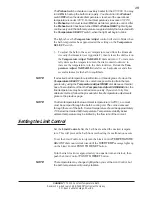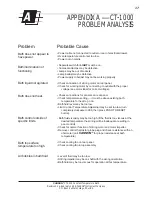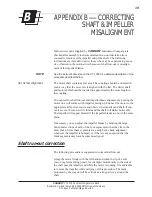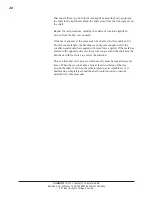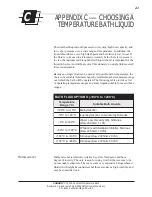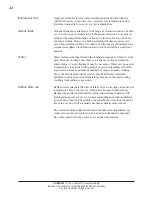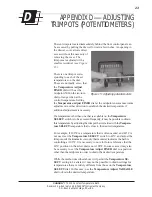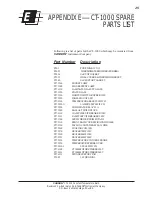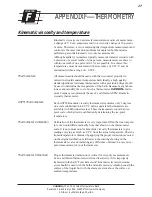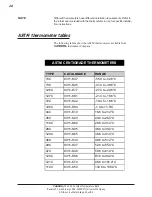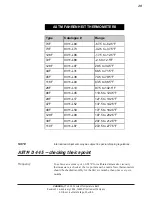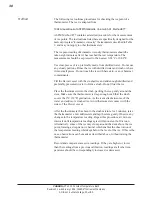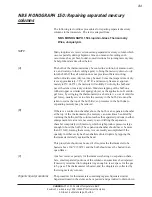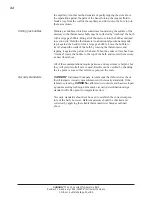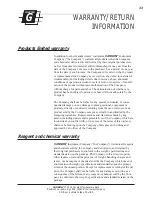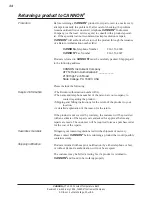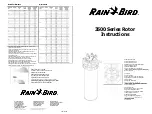
22
CANNON
®
CT-1000 Constant Temperature Bath
Revision 3.1a—February, 1998;
CANNON
®
Instrument Company
P.O . Box 16 • State College, PA • USA
Isopropyl alcohol
Isopropyl alcohol is less toxic than methyl alcohol and somewhat less
volatile. However, it becomes very viscous at low temperatures and is
therefore unsuitable for use at very low temperatures.
Silicone fluids
Silicone fluids are available in a wide range of viscosities and can be used
over a wide range of temperatures if the proper selection of viscosity is
made for the temperature range of interest. Silicones are also relatively
expensive liquids. However, a bath containing silicones requires extra
care when used for capillary viscometry. If silicones are introduced into a
viscometer capillary, its calibration factor will be altered by a significant
amount.
Water
Water is almost the ideal fluid in the temperature range in which it can be
used. Because in some cases there is a tendency for algae formation,
some degree of water treatment may be necessary. Water can be used at
temperatures close to the boiling point, but water replenishment to offset
evaporation becomes a nuisance and the hot vapor can make working
above the bath uncomfortable. Also, it may be difficult to establish
optimum control at elevated temperatures because of the rapid cooling
resulting from surface evaporation.
Refined white oils
Refined white oils (paraffin oils) of relatively low viscosity can be used at
temperatures above the level at which water becomes unsatisfactory.
Because these oils will turn faintly yellow and continue to darken with
prolonged exposure to heat, we recommend adding an oxidation inhibitor
to retard discoloration. The addition of an inhibitor will prolong the useful
life of the oil, but it will eventually become as dark as untreated oil.
The search for more suitable bath oils is unending. Hydrogenated veg-
etable oils, coconut oil, synthetic oils, and certain chemical compounds
have been used with some success at various temperatures.








